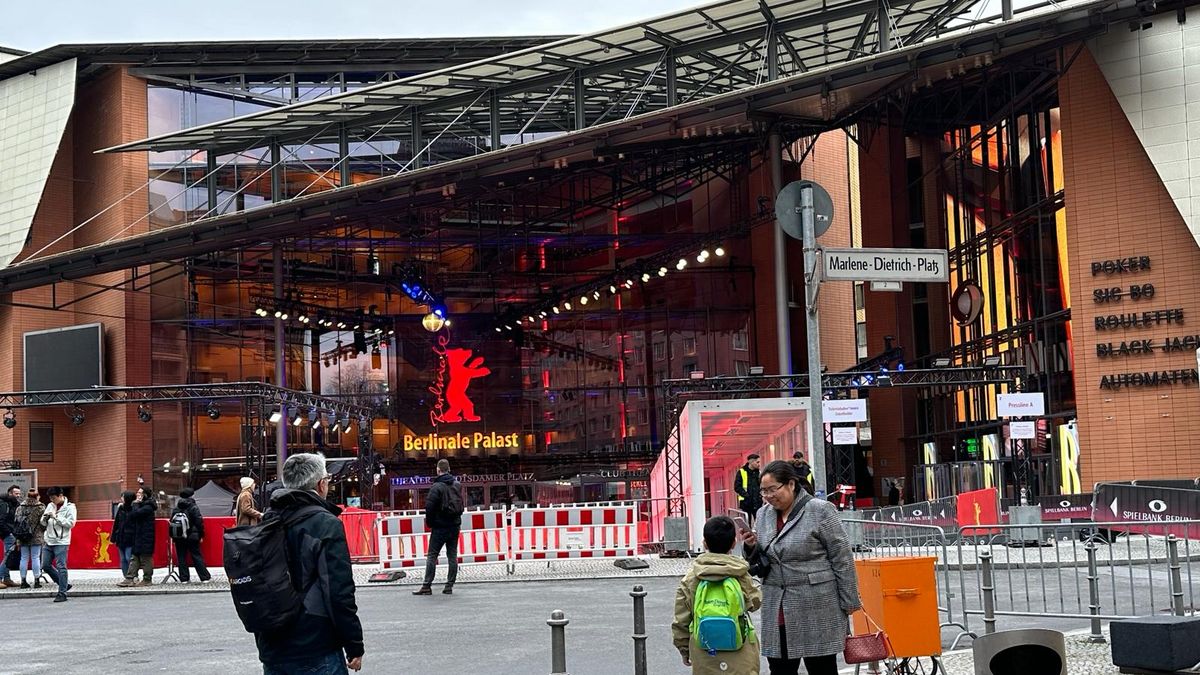From February 15 to 25, the city of Berlin celebrates the 74th edition of its film festival. Started in 1951, in the middle of the Cold War, with enthusiastic support from Hollywood for a city destroyed by the Second War, the festival evolved in format, location and time of year, but always retains two fundamental aspects: being a forum for films committed to history, politics and Zeitgeist [espíritu del tiempo]and channel the cinephile impulse of a legendary metropolis in the history of cinema.
The competition for Gold and Silver Bears presents twenty films, several of which in these first days have provoked a lot of interest from critics and the public.. The program of established sections such as the Forum and Panorama is always attractive, because it offers documentaries, national cinematography, author’s works and experimental works.
The newer sections, such as Berlinale Special and Encuentros, continue to seek their own profile, connected to the history of cinema and literary adaptations, classic and modern. For example, the documentary “Made in England” about the collaboration between the British director Michael Powell and his producer, of Hungarian origin, Emeric Pressburgerin the 40s and 50s. And also “You burn me”, by our compatriot Martías Piñeiro, who adapts a chapter of a work by Cesare Pavese in 60 minutes.
This year there is no presence of the National Institute of Cinematography (INCAA) at the European Film Market – the first important one of the year for the purchase and sale of films and series for the international market.. A group of directors has programmed a meeting on Tuesday the 20th, to talk about the situation of national cinema, whose state support has decreased and has no signs of improving. It will, in fact, be a stance against the new government and its plan to cut public spending. How much and how a country should support its cinema is an old debate, not only in Argentina, and that in our country was in fact resolved with the creation of the INCAA in 1968 to promote and subsidize national production.
The market is also a forum to exchange ideas about the film business and analyze the economic impact of the changes produced by new technologies.. Not only the effect of new forms of distribution and exhibition on platforms, created by the digital revolution, or the use of sophisticated visual effects programs, but also the consequences – largely more guessed than proven – of the artificial intelligence. One of the panels presented the perspective of the North American industry, and examined the use of a new program to generate images for film and televisionwhich goes beyond already integrated technology such as the “video wall” or the manufacturing of human voices.
The company OpenAI has just announced the Sora program – similar to its ChatGPT program, which caused so much furor a year ago. Sora – still in the development phase – is capable of generating a video with multiple characters in various situations, based on a written instruction. Just as ChatGPT can be asked to write a report on any topic, Sora can “generate”, using a vast audiovisual archive, an “action” on something specific. In the example presented, a herd of mammoths runs wild through a prehistoric tundra. As with any new technology – the steam engine that triggered the Industrial Revolution – there is a process of study and adaptation, the panelists agreed.
In Hollywood today, they commented, there are mixed feelings due to the displacement that it already implies of people specialized in miniatures and “props”, or also of cartoonists, actors and scriptwriters. They did not fail to warn – the panel concluded – that will be able to generate a photorealistic action by computerbut someone has to invent a story, and the best ones don’t come from machines, no matter how sophisticated they are.
Competence
The films seen in the first days of the Competition demonstrated the versatility of directors, scriptwriters and actors to address the human experience from diverse genres and premises. Ingenious and sophisticated was a science fiction film – gentle satire and cinephile tribute to “Star Wars” and “2001: A Space Odyssey”: “L’Empire”, by Bruno Dumont. It is a triumph of crazy imagination: partly filmed in Boulogne-sur-Mer (from Saint Martin’s memory), the characters seem to have come out of a Jacques Tati film; but what we see are spaceships of good and evil in the form of the Sainte-Chapelle and the palace of Versailles – elegantly digitized sailing through galaxies and landing on the beach.
There are “light sabers” but also Percheron horses as a means of transportation. The epic music by John Williams is replaced with a Bach disguised as rock, and the story is that of a child god incarnated as a mortal, and whom the forces of good seek to rescue. Are the French looking at Hollywood with affection and a certain intellectual air, and if the viewer accepts the premise, fun is guaranteed. The special effects are of the first order and the audacity of using architectural and musical landmarks, dismantling the conventions of adventure cinema and celebrating North American popular culture, were, for more than one journalist at the press screening, a breath of fresh air.
The touching European-financed Iranian comedy of manners “My Favorite Cake” brought censorship problems to its directors Maryam Boghadam and Behtash Sanaeeha, who could not leave Iran. The chaste romance of a middle-class widow and a retired military man, filmed over three years, will not circulate in Iran. It is not surprising that the mullahs launch attacks against those who offer acts of resistance.
He excellent German historical drama “From Hilde, With Love”, written and directed by veteran Andreas Dresenbased on a true story, about a young mother, executed by the Nazis, for participating in an informal spy network for the Soviet Union, provoked mixed reactions among critics. For some, dispensing with historical clichés and focusing on ordinary people who function with decency and courage exonerates the military, collaborators and Nazi sympathizers.. For others, the emphasis on ordinary people is a respite from films that build on stereotypes of the Third Reich, such as the recent “The Zone of Interest,” “Son of Saul,” or “Schindler’s List,” which draw from an already established narrative to explore other things.
A final comment on the also excellent second German feature film seen so far, “Sterben” (To Die), an autobiographical look at the family of its director and screenwriter Matthias Glasner. With love and patience, for three hours, and without a hint of melodrama, we see from multiple perspectives the relationship of a mother with her two children. It is not a settling of accounts between the members of a dysfunctional family but rather exploring the paths that led the three characters to be what they are.
What unites the sister and her brother, an orchestra conductor, is their vocation for music. The title “Die” is given by a piece of music, composed for the film and heard in several versions, the last of which closes the story. If Flaubert were our contemporary, he would put together the plot like Glasnershowing from a personal perspective, as if unintentionally, a story of universal scope.
Source: Ambito
I am an author and journalist who has worked in the entertainment industry for over a decade. I currently work as a news editor at a major news website, and my focus is on covering the latest trends in entertainment. I also write occasional pieces for other outlets, and have authored two books about the entertainment industry.




